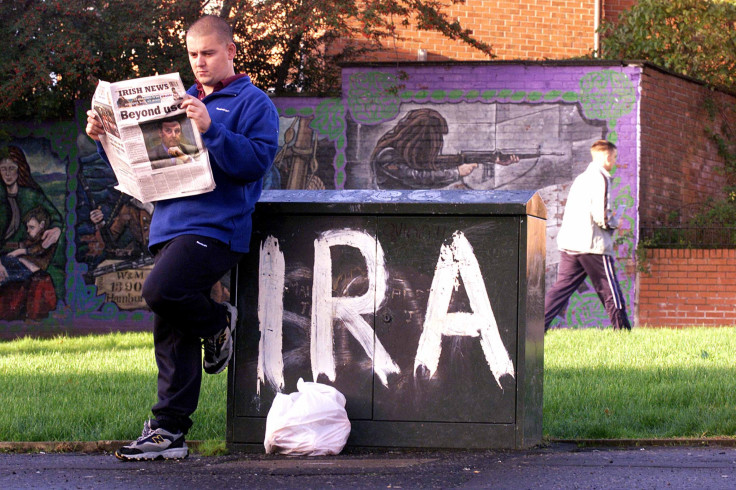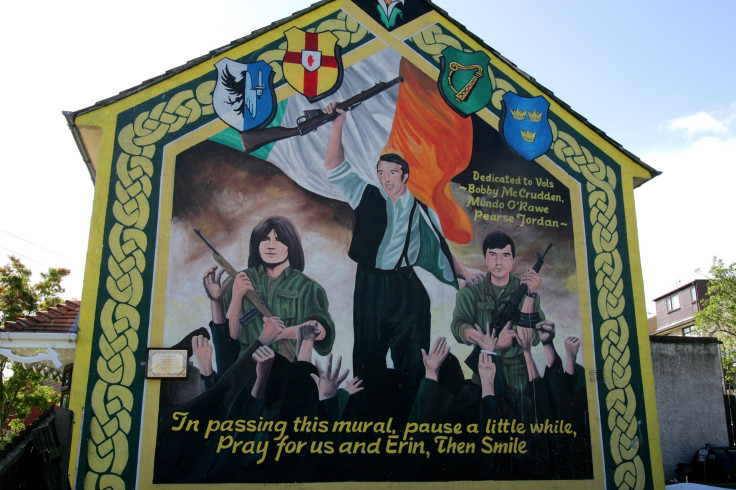IRA Still Exists? Provisional Irish Republican Army Goals Have Changed, Radical Faction Lives On, Report Says

The Provisional Irish Republican Army (IRA), a paramilitary group in Northern Ireland that was supposedly disbanded in 1998 following the Good Friday peace agreement, still exists, a report released Monday by U.K. intelligence service MI5 said. The group's structure and scope has been reduced greatly, but its decision-making body, the Army Council, remains.
The IRA was just one of several paramilitary groups active during the period known as the Troubles, or the 30-year conflict fought in Northern Ireland over whether the territory would remain part of the U.K. or join the Republic of Ireland. Almost all of the former paramilitary groups, such as the Ulster Volunteer Force, a loyalist group, also exist, though in similarly reduced forms, Tuesday's report said.
None of the old paramilitary groups currently poses a threat according to MI5, however, as they mostly have favored political over violent solutions in the two decades since the end of the Troubles. Only a group calling itself the Dissident Republicans or The New IRA poses a threat, the report said.

The Dissident Republicans was the only paramilitary group that refused to sign the Good Friday agreement, and it has taken responsibility for several bombings and murders in the region in the past 20 years.
The New IRA is one of the 10 richest U.S. and EU-designated terrorist groups in the world, with an annual turnover of $50 million, a 2014 report by Forbes found. An estimated several million of that funding comes from donations, particularly in U.S. cities such as New York and Boston where many Irish-American immigrants still support the Irish independence movement.
Ruling powers in Northern Ireland said the report was very concerning and looked to quash paramilitary groups. "These organizations should never have existed in the first place and 21 years after the first ceasefires and 17 years after the Belfast Agreement, it is clearly unacceptable that they still exist today," said Theresa Villiers, secretary of state for Northern Ireland, the Telegraph reported.
© Copyright IBTimes 2024. All rights reserved.






















